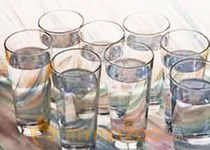The recommendation to drink six to eight glasses of water daily to prevent dehydration is a “thoroughly debunked nonsense”, says an expert.
There is currently no clear evidence of benefit from drinking increased amounts of water, according to Margaret McCartney, medical expert with the National Health Service (NHS), yet the “we-don’t-drink-enough-water” myth has endless advocates.
The NHS Choices website states: “Try to drink about six to eight glasses of water (or other fluids) a day to prevent dehydration,” while many schools also feel it appropriate to insist that pupils are accompanied to school by a water bottle,” the British Medical Journal reports.
Other organisations, often with vested interests, reinforce this message. For example, Hydration for Health (created by French food giant Danone) recommends 1.5 to 2 litres of water daily as “the simplest and healthiest hydration advice you can give”.
But McCartney argues that there is no high quality published evidence to support these claims. She points to several studies showing no clear evidence of benefit from drinking increased amounts of water, according to an NHS statement.
For instance, reports that increased water intake in children can improve concentration and mental performance have not been confirmed by research studies, while data relating water drinking to a reduction in children being overweight are prone to bias.
While there are some conditions that do benefit from drinking increased water, such as in people with recurrent kidney stones, other evidence for preventing disease is conflicting, McCartney said.












